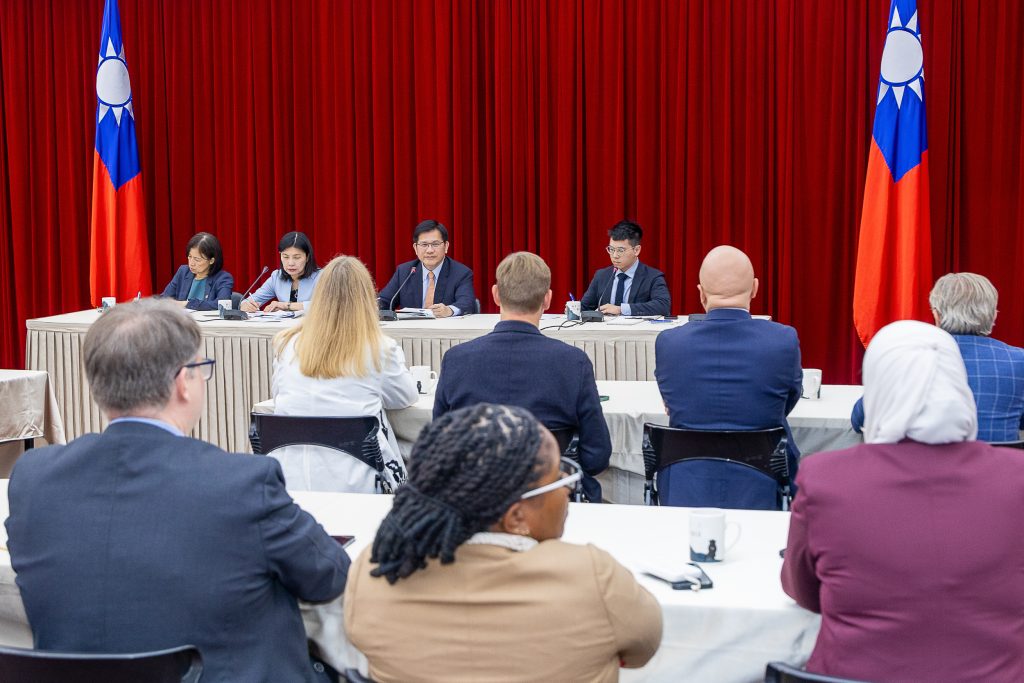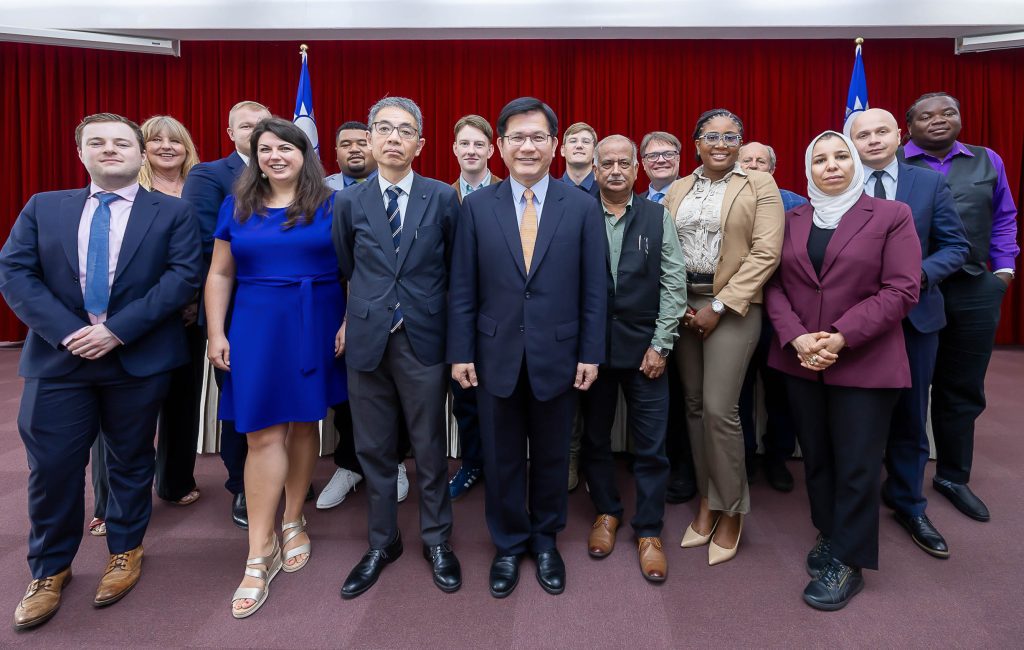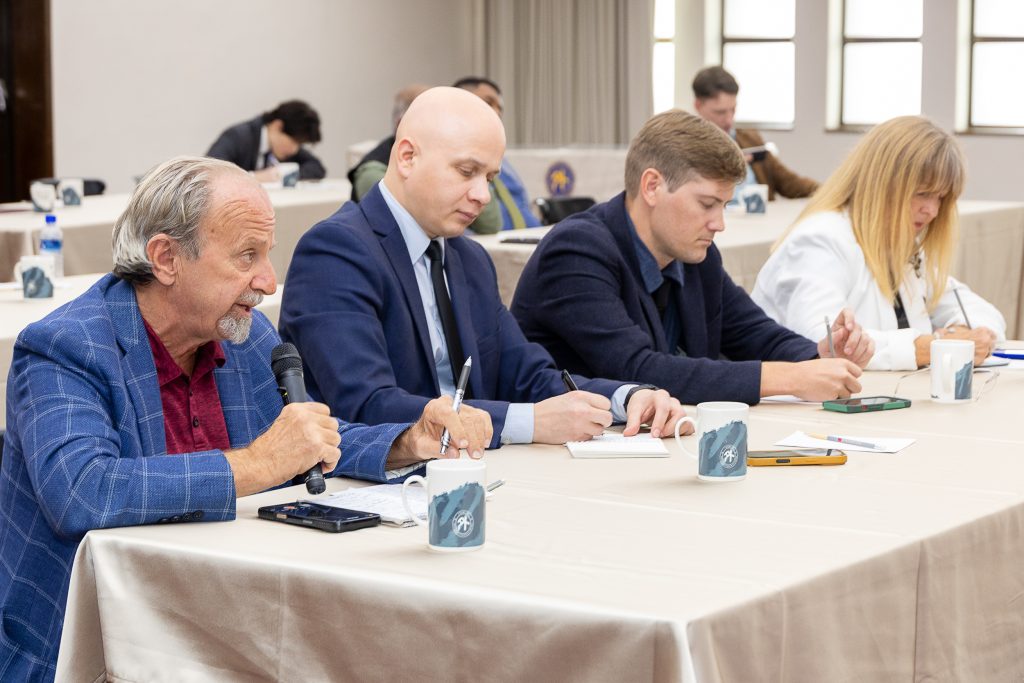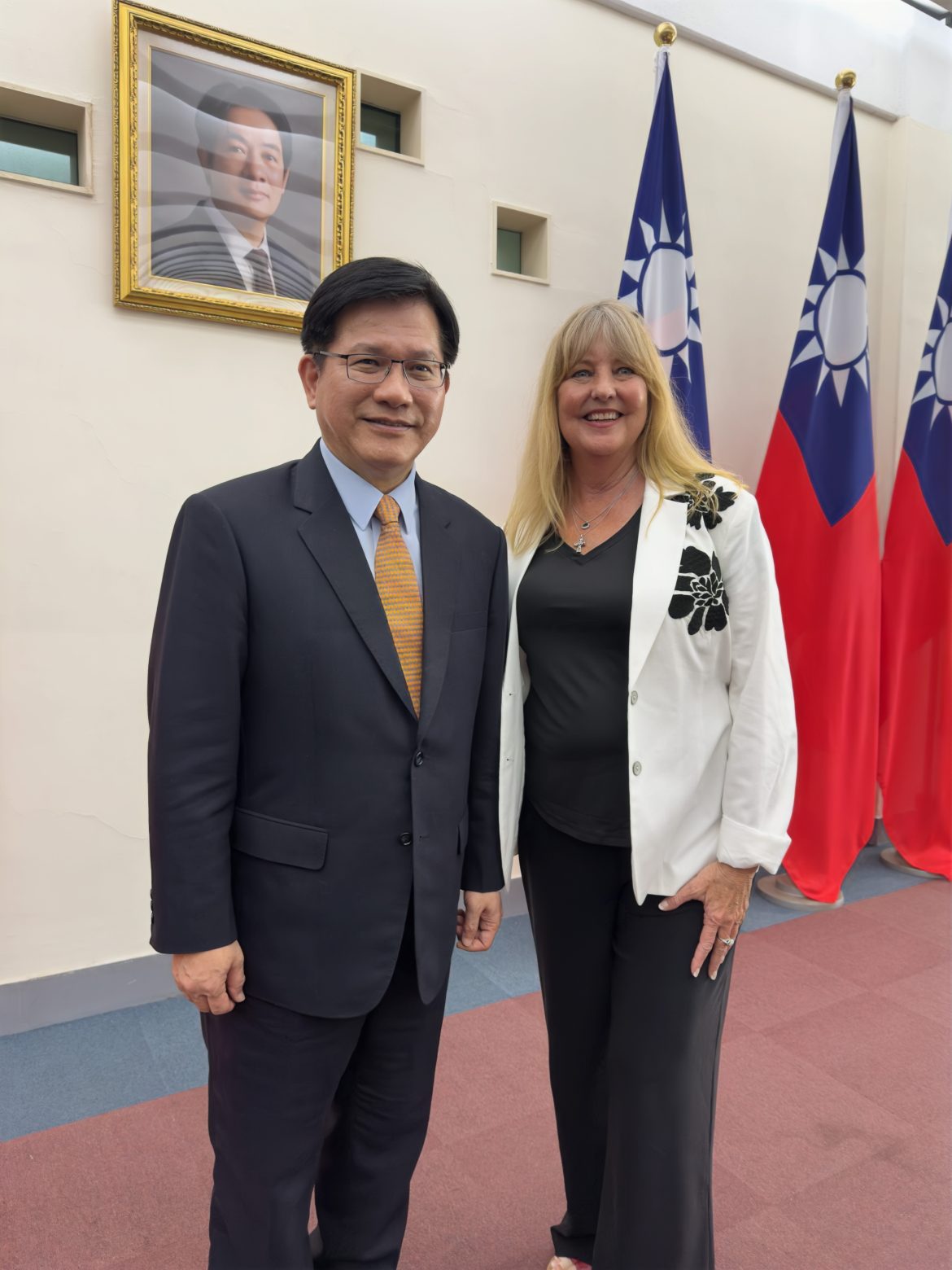
By Ruth Ann Ruiz
The Post Newspaper Features Editor
Second in a series of articles covering my time in Taiwan as an invited member of an international press delegation during Taiwan’s National Day Celebrations
I felt the multi-level building rumble slightly while sitting in a room with Taiwan’s Minister of Foreign Affairs, Lin Chia-Lung, Ph.D., members of his staff, and a delegation of foreign journalists.
That morning, before leaving the hotel, my phone had delivered an earthquake announcement from the Taiwan weather app that I had added before leaving the United States. I had not given much attention to the notification, as nothing seemed to be out of place in Taipei.

With no one in the room giving any attention to the slight rumble of the building, I concluded it wasn’t very important and must have been an aftershock. I made a mental note to check out earthquake status in Taiwan later in the day.
Fifteen journalists had traveled from various nations around the world, representing a variety of news platforms. Some were broadcast journalists, some were radio, and most of us were print journalists, like me.
As journalists, the opportunity to attend a press briefing with the foreign minister of a nation in the foreground of geopolitical issues was like catching the brass ring on a carousel ride. We had all been sure to dress in proper attire, and our adrenaline was running high.
Prior to taking questions, Minister Lin was pleased to share with the delegation that he had been in New York City during the United Nations General Assembly in September. This was the first time a representative from Taiwan was present in any manner during the UN General Assembly since 1971. Taiwan is not represented in the UN.

After his introductory statement, it was time for questions from the delegation.
Several journalists from Europe had some hard-hitting questions regarding the war between Russia and Ukraine. The foreign minister answered in Mandarin with an interpreter who repeated the answer in English.
He said without any hesitation, “China and Russia are staging war every day, and we cannot allow that to be acceptable.”
He reminded journalists of a statement from NATO out of Washington that claimed, “China is a decisive enabler of the war.”
Minister Lin chastised NATO nations for not working together.
“A few NATO countries are trying to achieve peace without paying the cost. Let me illustrate—for example, you are buying cheap oil and cheap gas from Russia, and you are also buying very cheap products from China. Concerning security in the Russia-Ukraine war, you are relying on the US to be your protection and support, no matter whether you like it or not,” said Lin.

He continued, “This incident awakens all of us that no achievement can be done without making an effort. It means that all of us need to stand together and all of us need to shoulder the risk to achieve peace.”
Lin praised NATO countries for developing their defense budgets to 3 percent of their GDP.
A Canadian journalist questioned him regarding Canada’s vast oil reserves and how they might impact offsetting Russian oil exports.
At this question, Minister Lin took the opportunity to explain that Taiwan is energy dependent.
“Over 90 percent of Taiwan’s energy is imported from abroad—it is an energy security issue for us,” said Lin.
He explained that should the supply chain of energy imports to Taiwan be interrupted due to outside influences such as conflicts with China, this would then impact their energy security.
A correspondent from the Vatican asked about relationships between Taiwan and the Vatican and Pope Leo XIV.
Lin replied by giving examples of how Taiwan and the current pope have already begun to establish positive relations. He also talked about Taiwan’s people being able to enjoy freedom of religion, which he believes will lead to greater relationships with the Vatican.
The final question of the day came from a Swedish journalist who asked about societal resilience in Taiwan.
To this question, Lin responded with examples of the recent flooding and mudslides that had been a result of Typhoon Ragasa. As an example of societal resilience, he spoke of the volunteers who had united in helping the victims of the natural disaster.
He spoke of Taiwan’s national warning systems for disasters and the planning that Taiwan has in place to respond to disasters for the people and for critical infrastructure.
He also spoke of instances when other nations have needed disaster relief and that Taiwanese organizations have helped other nations.
Throughout the hour-long press conference, Minister Lin also fielded questions on artificial intelligence, climate change, and the Palestinian state status. Yet regarding the earthquake and the building rumbling that I had felt earlier, no one asked or spoke of it.
Back at the hotel, I did my internet research and confirmed there had been an earthquake with aftershocks. In fact, it turned out there had been two earthquakes on Wednesday, October 8, the day of the press conference.
The first one measured 5.1 magnitude and occurred at 10 km under the surface. The epicenter of the earthquake was in Hualien, which is about 74 miles from Taipei. The second one measured 4.1 magnitude and was at 19 km depth out in the Pacific Ocean near Hualien.
Taiwan is in the Pacific “Ring of Fire” near the Philippine tectonic plate and the Eurasian tectonic plate; earthquakes are a common experience for Taiwan.
I do believe not only did I catch a brass ring, I also experienced aftershocks of an earthquake as I sat at the press briefing in Taipei.

